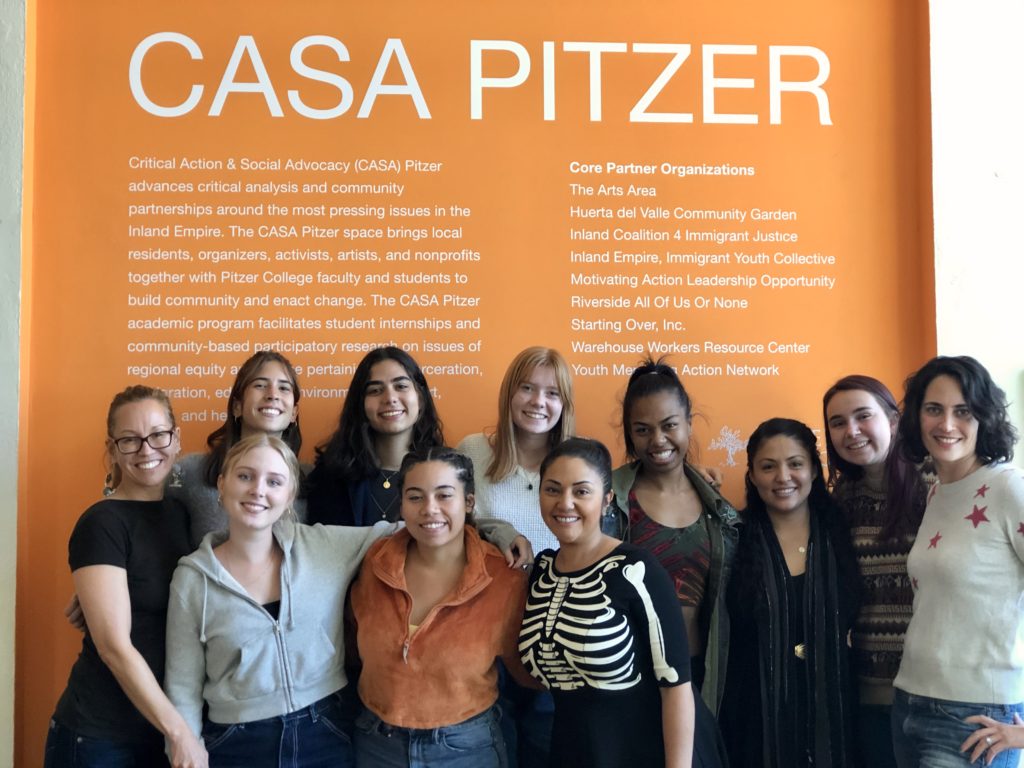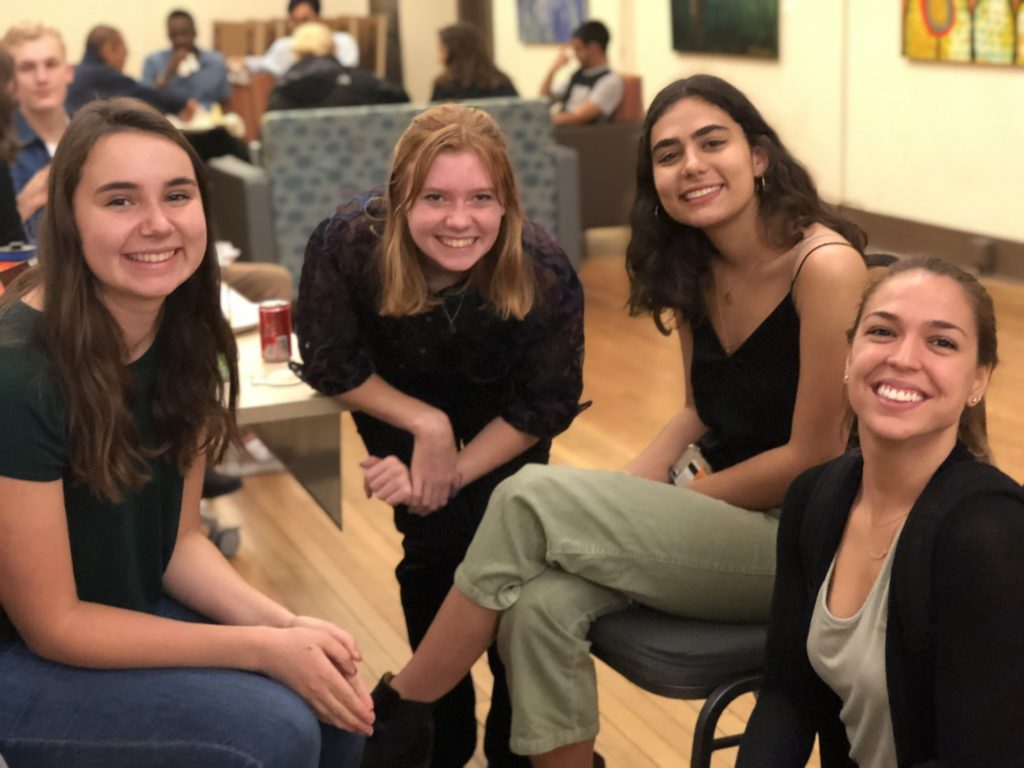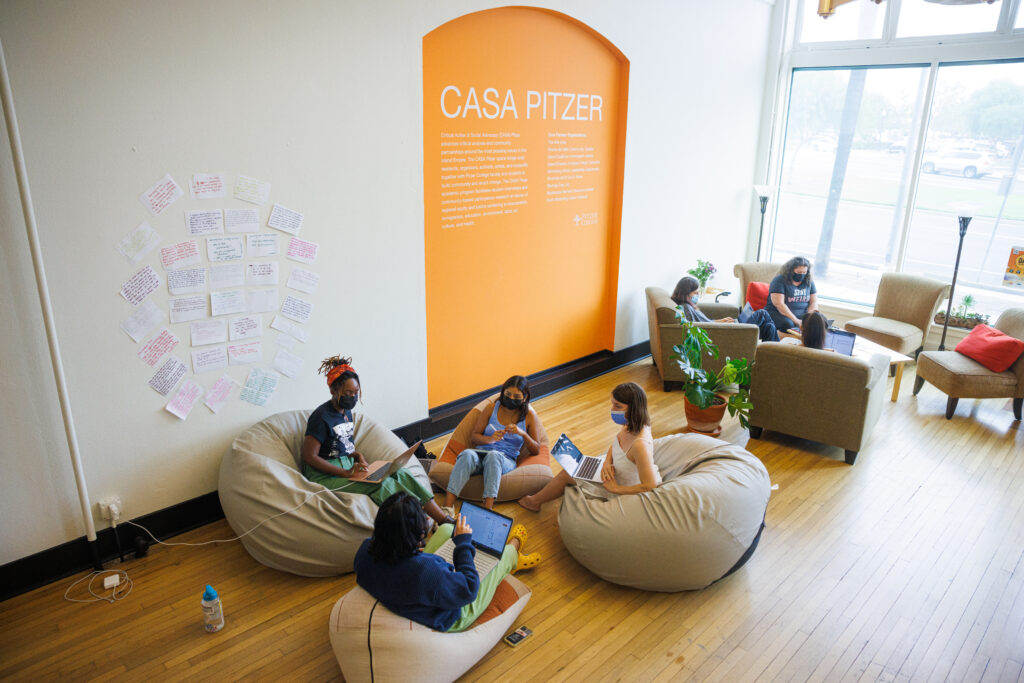
This program requires that you co-enroll in two courses (CASA 101, Critical Community Studies and CASA 105, Research Methods for Community Change, plus participate in a 125-hour internship in the community, thus receiving 3 credits for 2 classes). For more information about CASA Pitzer, please contact our Program Manager, Scarlett Duarte.
Principles
- Interconnection (our liberation are bound; the diminishing and healing of our humanity is locked in a “network of mutuality” (Martin Luther King, Jr.)
- Dedication to standing up to injustice and working for equity, well being and peace while creating joy, security, and connection
- Dedication to embodied justice and radical healing
- Imagination and Creativity (imagining the world we want and creatively cultivating it together)
- Respecting local knowledge, culture, assets, and power
- Cultivating long term and meaningful partnerships
- Following the lead of those most directly impacted in the community
- Prioritizing projects that work towards greater personal and systemic change
Goals
- Work collaboratively with community partners on research, service, organizing, and action projects that confront injustice and work towards justice, equity, rights, care, wellbeing, and community building.
- Ensure work is accountable to the community, makes a positive impact, achieves long and short term goals, and cares for those involved.
- Listen and respond to needs and assets of our local community and justice-oriented organizations
- Create a space that is inclusive, welcoming, and supportive for community-building, justice work, participatory action research and organizational development
Community Based Research
Community-based participatory action research is a methodology that equitably involves community members, organizational representatives, and researchers. All partners participate in the process: contributing expertise, decision-making, and sharing ownership of what is produced. The aim of CBPAR is to increase knowledge and understanding but also to integrate knowledge gained with interventions for policy or social change to benefit community members.
There are various CBPAR approaches that can be used to engage community members from initial engagement of the public to the empowering of communities that can lead to collective goals and social change. There may also be different levels of engagement for different stakeholders though the emphasis on collective decision-making and ownership is paramount to this process.



Course and Internship
CASA students explore current movements, theories and narratives centered around critical social justice issues in our local communities and effective means for making social change. Courses will highlight frameworks and practices of community-based participatory action research, transformative movement organizing, and healing justice, which work on building peace, wellbeing and liberation from the inside out. Students will apply theory to practice through interdisciplinary scholarship, in-class dialogues, writing assignments utilizing self-reflection and critical analysis, experiential learning, creative art activities, and direct engagement with local change-making organizations and movements through community-based participatory action research. Our theoretical frameworks are grounded in a cross section of disciplines, including contributions from cultural studies, psychology, sociology, education, community health and political studies. Course praxis (theory + action +critical reflection) plays out in large part through the program’s intensive practicum (125-hour internship), class field-trips and interactive workshops that exemplify that which we study. Students engage in hands-on applications of community-based education and develop greater awareness of their own positionalities and values, as well as local knowledge, assets, and approaches to social change.
Program Requirements
Students must take the 2 courses simultaneously:
- CASA 101 PZ-Critical Community Studies
- CASA 105 PZ-Research Methods for Community Change
Majors Credited
CASA is designed for sophomores and juniors, and it satisfies the following majors:
- Sociology
- Environmental Analysis
- Organizational Studies
- Critical Global Studies
- American Studies
Graduation Requirements Fulfilled
- Social Responsibility Praxis
- Social Justice Theory
- Intercultural Understanding (local)